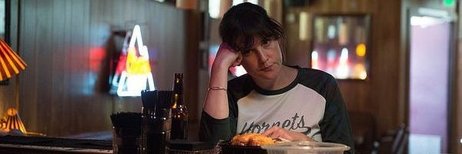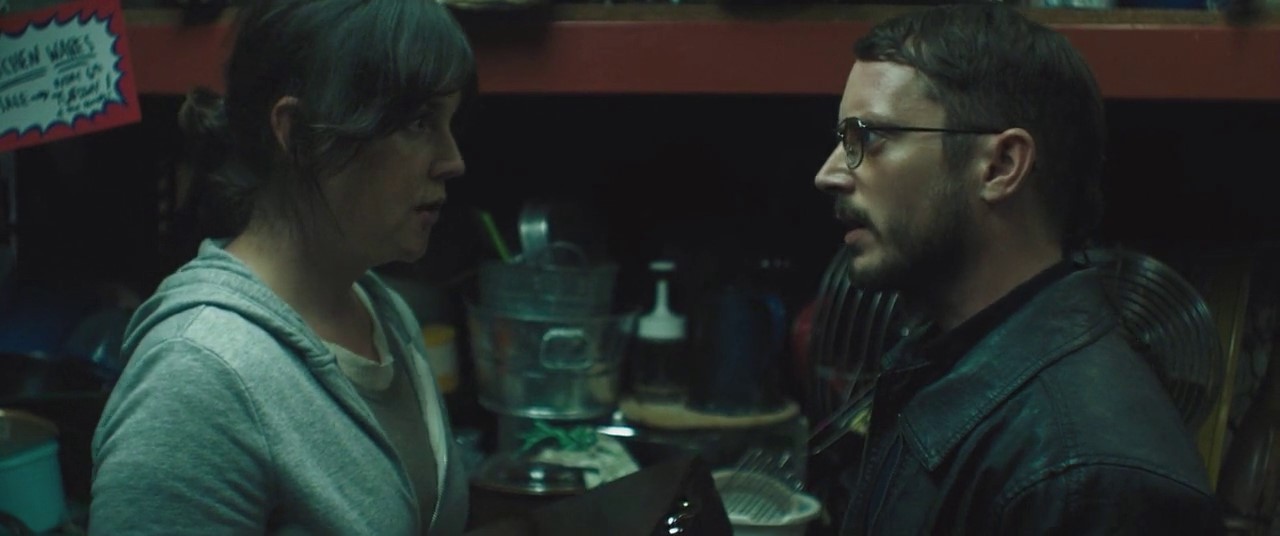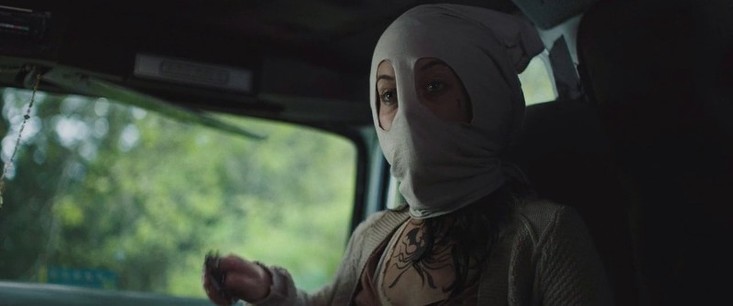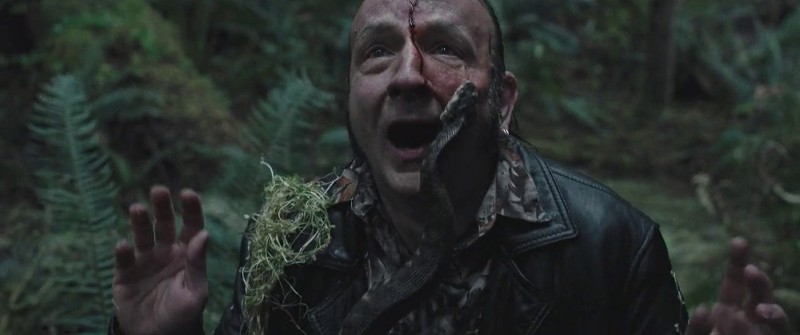 Macon Blair's I Don't Feel At Home In This World Anymore is a clever albeit dark oddity, a relatively simple story with outlandish designs, a thriller with heavy bouts of comedy that manages to be a rather pointed commentary on humanities' self-centered, me-first, nature, a plea of sorts for a more empathetic world. Centered around Ruthie, a medical nurse, who is going through an existential crisis, I Don't Feel At Home In This World Anymore documents a woman who grows increasingly detached from society, depressed and frustrated by the daily occurrences of self-centered behavior, both big and small, that she witnesses throughout her day. Returning from work one day to find her home burglarized, Ruthie takes it upon herself to track down those responsible after the police themselves prove little help. Driven not by her lost material possessions so much as the principle of stealing, the violation against her personal space and property, Ruthie sets off on a wild ride, enlisting the help of Tony, her oddball, obnoxious neighbor. What starts out as a relatively timid brand of vigilante justice quickly escalates, as both Ruthie and Tony soon find themselves dangerously out of their depth, up against a group of vile, degenerate criminals, who epitomize the self-centered nature which haunts Ruthie to her very core. The inherent selfishness of humanity is an aura that envelopes the entire running time of I Don't Feel At Home In This World Anymore, a film which uses its dark, comedic tone to deliver a wild ride that finds a good-natured woman completely out of her element as she enters the arena of degenerate criminality. Everyone from the police inspector to Ruthie's sister's husband are motivated by their self-centered nature, something which drives Ruthie into a state of depression, and eventually vengeance, but as soon as she finds herself face-to-face with the men responsible for her robbery, she realizes that her fixations may in fact be a bit extreme. I Don't Feel At Home In This World Anymore touches on the inherent selfishness of humanity but also how Ruthie's depression itself only amplifies her own disdain of others, with this journey in vigilante justice serving as a reminder of what true evil is, in the form of these criminals, who have literally no empathy for their common man. Common decency, while a worthy expectation, does not define an individuals overall morality, something which Ruthie's journey exposes in the end, as many of these characters are simply wrapped up in their own problems or personal trauma, most of the time unintentionally slighting others due to their won problems (the police officer would be a good example of this). A common collaborator with Jeremy Saulnier as an actor, Macon Blair's directorial debut shares some similarities with the talented filmmaker, touching on both the toxicity of vengeance, the emptiness or lack of fulfillment it brings, and the general need for more understanding, communication and empathy. Make no mistake, I Don't Feel At Home In This World Anymore stands on its own, but given the low-key, rural nature of the story, as well as the primal/swift nature of the violence and death on display, Macon Blair took cues from Jeremy Saulnier. While I haven't touched on the comedic nature of this film too much, I'd be remissed if I didn't specifically call out the performance of Elijah Wood as Tony. Wood is the comedic relief most of the time, a peculiar, obnoxious character whose off-kilter nature is downright hysterical throughout the film. Macon Blair's I Don't Feel At Home In This World Anymore is a film that manages to balance its serious and comedic elements to perfection, being a darkly funny story full of introspection that never manages to take its foot off the gas, as it transports the viewer into the world of its central protagonist.
0 Comments
Leave a Reply. |
AuthorLove of all things cinema brought me here. Archives
June 2023
|



 RSS Feed
RSS Feed
